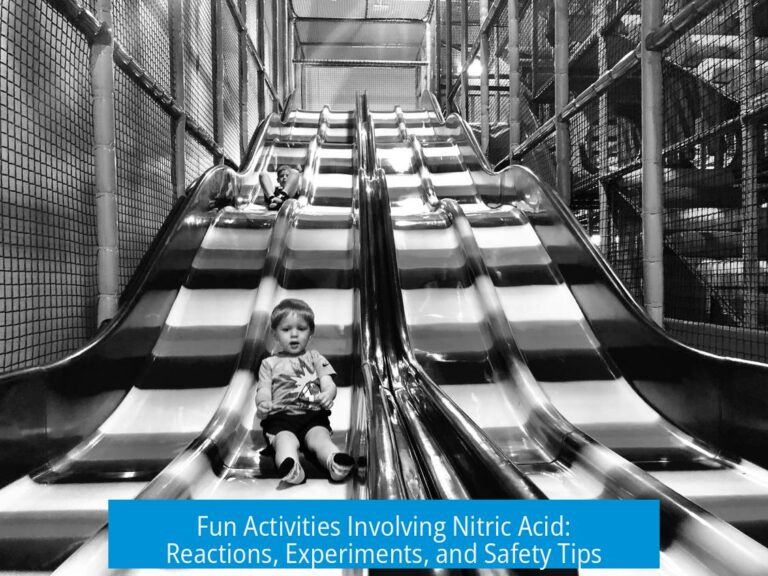What Jobs or Careers Can I Do with a Chemistry Degree That Aren’t Industrial or Academic?
A chemistry degree offers many career paths outside traditional industrial and academic settings, including government roles, science communication, legal professions, project management, sales, and unconventional fields. The degree’s broad scientific foundation enables graduates to work in diverse areas that utilize their analytical skills, problem-solving abilities, and scientific knowledge.
Government and Regulatory Roles
Chemists qualify for various government positions without further specialized training. These roles include:
- Regulatory Agencies: Chemists can work at organizations like the Environmental Protection Agency (EPA), contributing to environmental regulation and safety evaluation.
- Environmental Monitoring and Research: National laboratories offer roles addressing environmental challenges such as contamination, toxicology, and pollution control.
- Military Positions: The military employs chemists for research, development, and technical advisory roles. Some chemists enter military aviation or technical career tracks.
- Government Research Labs: Working in government science labs often blends research with policy and applied science across fields like medicine and renewable energy.
- Public Health and Safety: Roles in contamination assessment, environmental toxicology, and public safety within government provide meaningful opportunities leveraging chemistry expertise.
Government jobs commonly combine scientific inquiry with public service responsibilities. Chemists often gain notable autonomy and the chance to influence policy and regulation.
Science Communication and Related Fields
Chemistry graduates frequently move into scientific communication roles translating complex scientific concepts into accessible information.
- Science Writing and Journalism: Writing articles, reports, and educational content for scientific publications, news, and marketing materials is a common career.
- Educational Content Development: Designing learning materials and reviews for clinical trials or academic use among various stakeholders.
- Technical Communication Liaisons: Acting as intermediaries between technical teams and management or customers ensures clearer understanding and project alignment.
Skill in both scientific understanding and communication sharpens effectiveness in marketing, management, and educational contexts.
Intellectual Property and Legal Careers
Chemistry knowledge provides a strong foundation for careers in legal sectors, especially those dealing with patents and technology licensing.
- Patent Lawyer or Patent Agent: With additional specialized legal training, chemists can represent inventors, assess patent applications, and advise on intellectual property rights.
- Legal Consultancy: Chemists with dual qualifications may consult for law firms or corporations on compliance, risk assessment, and regulatory issues.
This career path combines scientific expertise with legal processes, offering roles often outside traditional scientific environments.
Project and Product Management
Chemists frequently transition into managerial roles that oversee product development, clinical research, or strategic marketing.
- Project Management: Overseeing lab projects or cross-disciplinary teams in medical or scientific organizations.
- Marketing Strategy: Developing marketing plans geared toward scientific products and services.
- Clinical Trial Coordination: Managing aspects of drug or device testing requiring scientific oversight and organizational skills.
Chemistry graduates who understand both technical details and business contexts thrive in bridging communication gaps between research and commercialization teams.
Sales and Technical Product Support
Jobs in sales often leverage chemistry knowledge in roles such as technical sales for laboratory chemicals and scientific equipment.
- Technical Sales Representative: Advising customers on suitable scientific products requires understanding chemical applications and product specifications.
- Product Support Specialist: Helping clients troubleshoot and optimize usage of chemical reagents or instruments.
Such positions combine scientific expertise with customer interaction and business skills.
Alternative Careers and Unconventional Paths
Chemistry degrees do not restrict graduates to science-focused jobs alone; they enable entry into various unconventional careers.
- Accounting and Finance: Some chemists pursue accounting careers, illustrating how analytical skills transfer to finance and business management.
- Culinary Arts: Chemistry helps chefs understand molecular cooking and food chemistry.
- Artistic Careers: Some enter fields like tattoo artistry, applying fine motor skills and creative thinking.
- Tech and Programming: Chemists might leverage problem-solving skills in software development or entrepreneurship.
- Logistics and Business: Business roles such as logistics management benefit from chemists’ analytical thinking and sometimes an MBA.
These career paths highlight the wide applicability of a chemistry degree beyond science-focused roles.
Clinical and Medical Related Roles
Chemistry graduates contribute to medical fields without following traditional academic or industrial labs.
- Clinical Laboratory Careers: Working within hospitals or diagnostics labs conducting chemical analysis related to patient care.
- Regulatory and Compliance: Ensuring medical products meet standards through laboratory assessments.
These roles offer direct patient impact and medical community involvement.
Quality and Compliance Management
For those seeking hands-off scientific roles, quality management and compliance positions oversee standards adherence.
- Quality Manager: Supervising quality assurance processes in product manufacturing without direct lab work.
- Compliance Specialist: Ensuring processes meet regulatory and internal requirements.
Although experience is often required, these careers offer opportunities away from hands-on bench chemistry.
Field-Specific Roles
Chemists can engage in field work or regulatory lab positions, such as:
- Field Service Engineering: Servicing scientific instruments and equipment onsite.
- Government Lab Roles: Working in federal agencies like the Food and Drug Administration (FDA) analyzing samples and enforcing standards.
These roles combine practical scientific work with real-world applications outside industry and academia.
Career Flexibility and Transferable Skills
Chemistry degrees foster skills like critical thinking, problem solving, and effective communication. Employers highly value these in various fields.
- Transferable soft skills enable career changes even into finance, law, or entrepreneurship.
- The degree does not limit job options; career paths are shaped by interests, further training, and experience.
- Backup career plans help navigate the job market effectively given the degree’s varied applicability.
- The career trajectory depends significantly on proactive exploration and skill building.
Summary of Possible Careers Outside Industry and Academia
| Category | Example Careers |
|---|---|
| Government & Regulatory | EPA roles, National Labs, Military science, Environmental regulation, Public health positions |
| Science Communication | Science writer, Educational content developer, Technical liaison |
| Legal & Intellectual Property | Patent agent, Patent lawyer (with training), Legal consultant |
| Management Roles | Project manager, Marketing strategist, Clinical trial coordinator |
| Sales & Product Support | Technical sales rep, Product support specialist |
| Alternative Careers | Accounting, Culinary arts, Tattoo artist, Tech entrepreneur |
| Medical & Clinical | Clinical lab technician, Medical compliance |
| Quality & Compliance | Quality manager, Compliance officer |
| Field & Government Lab | Field service engineer, FDA lab analyst |
Key Takeaways
- Chemistry degrees open diverse career options beyond industry and academia.
- Government and regulatory agencies offer roles focused on environmental, military, and public health science.
- Science communication and legal career paths utilize chemistry knowledge with additional skills or training.
- Management, sales, and technical support roles capitalize on scientific and interpersonal skills.
- Unconventional careers, including finance, culinary arts, and tech entrepreneurship, are accessible due to transferable skills.
- Flexibility and soft skills enhance job prospects in various fields.
- Backup plans and proactive skill development improve career success.





Leave a Comment